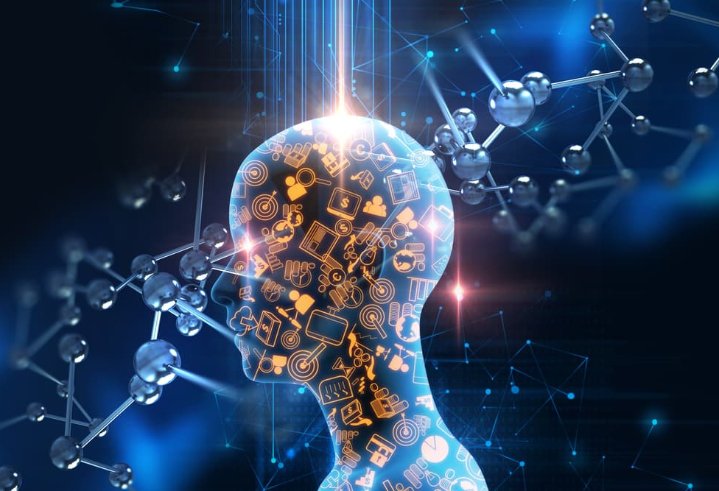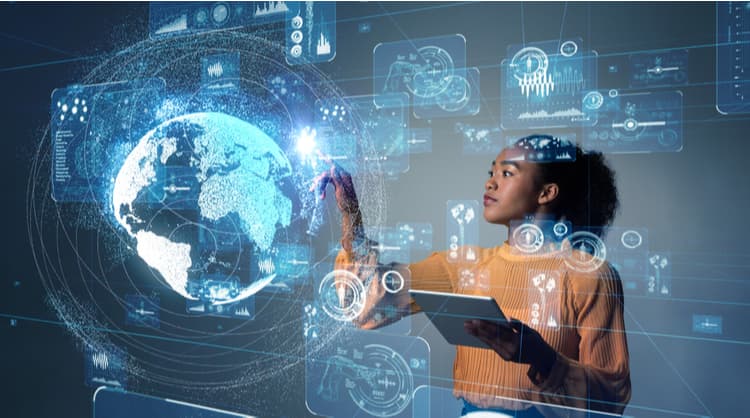Will AI take over your programming job?

Automation, AI, and machine learning have increasingly raised concerns among our industries – and for good reason: in the next 10 to 15 years, 40% of current Australian jobs (over five million roles) are predicted to surrender to the rapid rise of technological advancements.
The age of robots are upon us, with most – if not all – careers susceptible to its integration. While jobs within the agriculture, mining, and manufacturing fields were among the first replaced, research now reveals the growth of AI in the world of programming.
SkillsTalk discuss AI’s current role in the coding field, the risk of obsoletion among programmers – and how to embrace these impending developments.
First off… can AI write code?
Short answer: yes.
In just the past few years, a handful of applications were developed by the best minds in tech – designed to write code at a cheaper and faster rate than the regular human programmer.
Among these was a program-writing AI titled “SketchAdapt”. A collaborative project by Solar-Lexama and Josh Tenenbaum, the application was capable of composing brief, high-level programs, while a second set of algorithms sought out sub-programs to fill in the details. SketchAdapt was thus able to switch between two modes – one dedicated to statistical patterns and another on “versatile, symbolic reasoning.”
The development was progress towards a long-time goal among AI researchers: teaching computers to independently write code (also known as “program synthesis”).
While simpler in their execution, other programs have followed a similar path, including BAYOU and DeepCoder.
The former is an application that uses keywords to predict what program one is currently writing, suggesting the next few lines of code one might need to complete it. The latter is a project developed by Microsoft and researchers at Cambridge University; a program that searches through a large coding database to solve simple problems.
Despite copious room for further innovation, the efficiency of AI-powered programming is understandably a top concern among programmers. In a survey performed by Evans Data Corp, 29% of software developers surveyed cited replacement by artificial intelligence to be the most worrying aspect of their career.
Is this the end of programmers?

In terms of developing a higher intelligence than their human counterparts, researchers predict these advancements to be “a long way off”. AI systems can speed up procedures, provide facial recognition and offer personalised experiences, sure – but their performances are yet to mimic the creativity, analysis, and critical thinking of the human brain.
While apps like BAYOU, DeepCoder, and SketchAdapt can offer automated lines of code, they still lack the valuable skill of interpreting customer value, examining and prioritising features, as well as conjure up program concepts of their own.
Human ideas will thus remain a valuable commodity in the programming industry, required to fully understand problems, specifications, and tend to the more critical aspects of software development.
As stated by Artur Hebda, a software developer from the AI consulting firm, Railsware: “Creating software is primarily about converting vague requirements into a strict specification that can be run deterministically… and that’s not easy even for humans.”
Statistics also display optimistic projections for Australian programmers, with a likely 25,500 increase in workers between 2018 and 2023. During this time, about 80,000 job openings (from new roles created and employee turnover) are predicted to emerge.
The benefits of AI-powered programming
Rather than replace programmers altogether, AI is predicted to further the industry alongside them.
These enhancements are expected to assist developers in their projects, accelerating the process by automating the tedious, mundane tasks – leaving more room for the critical and creative.
The aforementioned already perform such roles; with DeepCoder helping programmers in typical problems and BAYOU serving to aid one’s program to completion through its predictive functions. In fact, BAYOU has received praise for its ability to make software development “less intensive” and repetitive.
Rather than spending time on forums (such as StackOverflow), consulting with other programmers for assistance, coders can now turn to BAYOU for an immediate response to common questions. A function of the app is to interpret user queries on the best kind of programs for certain tasks – generating the optimum one to integrate into their code.
AI can also help in preventing common errors – one of the greatest advantages predicted for developers. These advancements can effectively shorten testing and debugging sessions.
Game development company, Ubisoft, has already built such a tool. Titled “Commit Assistant”, the system refers to an expansive library of previous coding mistakes and how they were corrected, detecting potential bugs before they are made.
Finally, AI techniques have currently been developed to enhance code security. New systems can now learn correct programming patterns, analysing such patterns in new code – and assessing any vulnerabilities.
How programmers can embrace AI

With AI tending to the mundanities of programming, coders can focus their efforts on “big-picture” concepts – work that holds more weight and meaning. They can now experiment and train AI systems to develop more innovative programs, and at a faster rate, at that.
CEO of Coseer, Praful Krishna, has embraced the way AI has improved his team’s workflows, describing it as if “they have a team working for each of them”. However, employees often struggle through the “trust curve”, in which they manually assess AI performance for errors (defeating the purpose of implementing it); though they eventually learn to trust it in a matter of a few months.
Automation and AI can also help programmers speed through large workloads; such as the (ethically ambiguous) case of an anonymous coder who completed his weekly tasks in just two hours, while still receiving his full-time salary.
In general, while advancements in tech are predicted to replace numerous jobs, these same innovations are set to create new ones. In fact, AI is projected to create 7.2 million new jobs through its productivity gains and development of new commercial markets.
As mentioned, programmers needn’t be worried for now – though those who wish to future-proof their careers can always upgrade their skills for the demands of the future. Emotional intelligence, empathy, and social skills are just a few exclusively human competencies immune to AI developments; though programmers can also train themselves in higher-level occupations that embrace advanced technology.
Enhancing skills for the future
As we welcome the era of AI, programmers can keep their skills in tune with the latest tech developments through vocational training.
Upskilled offers both veteran and aspiring experts with a wide range of courses in information technology – from foundational skills in coding to specialised programs in game design or website development.
Best of all, each course is delivered 100% online, helping you tailor your studies according to your personal needs and schedule.
Stay ahead of the IT curb, and enquire about a course today.


)
)

